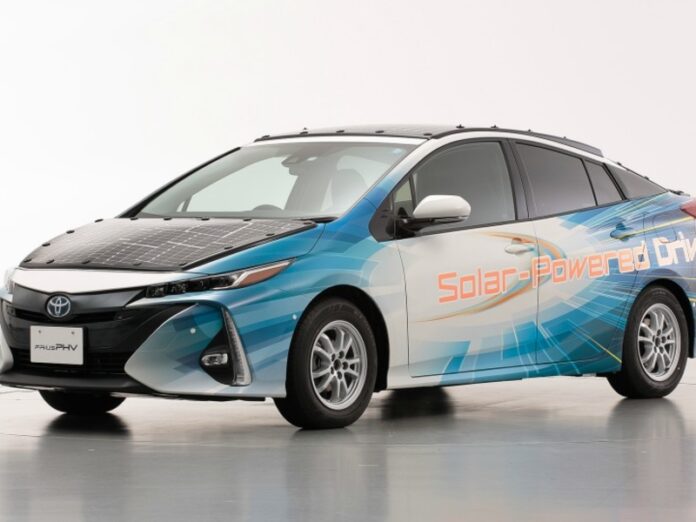TOKYO: Inspired by new ultra-thin solar panels developed for satellites, a project led by Toyota Motor Corp is experimenting with a sun-powered Prius that it hopes will one day require no plugging in.
In the Japanese government-funded demonstration project, Toyota engineers fitted solar panels designed by Sharp Corp to the hood, roof, rear window and spoiler to see how much juice the sun can generate.
The electricity from the panels goes directly to the drive battery, so the Prius can charge while moving or when parked.
On a good day, the charge can be sufficient for up to 56 kilometres (35 miles) of travel, more than the 47 kilometres driven a day by the average American, according to a study by the AAA Foundation for Traffic Safety.
But the performance drops off quickly if it is cloudy or even when it’s too hot. If used in real-world driving in those conditions, the Prius would have to be plugged in to recharge.
The solar cells are super-slim – just 0.03 millimetres, making them malleable enough to form-fit to the body of a car. The engineers needed to create a buffer between the car and the cells to protect them, so the actual solar panel modules are closer to a centimetre thick.
The trunk of the car is filled with batteries for the solar panels, adding an extra weight of around 80 kilograms (180 lb).
Making the entire package lighter and bringing down the extremely high costs are among the biggest challenges for the technology, said Satoshi Shizuka, Toyota’s lead engineer on the project, adding that commercialisation likely remained “years away”.





Compliments Mr. Satoshi Shizuka on trails/simulation on Toyota Prius tested to charge batteries in the Prius, creating a test run for limited area on the batteries. Of particular interest are the lead worldwide and here in Karachi, Pakistan where I live with Mitsubishi Lancer on gasoline/CNG (compressed natural gas). As the CNG cylinder weighs about 80 kg., which is now useless. Please consider my name and car in Karachi to volunteer with solar panels (thin film) from Sharp Corporation.
I was considering the usage of Texas Instruments Hybrid module kit, which I’m not certain of compliance. But the Sharp Solar Film is wonderful idea. I will volunteer to take the car at the local Toyota assembly plant in Karachi for the trail application/simulation of results and also batteries which will be charged. This trail/application will be confidential and I will fill disclaimer and meet your requirements. This will be a wonderful bonanza for Toyota to conduct trails in Pakistan as well and my car is available, the only thing you have to apply film for solar PV.
Wit h best wishes, Haroon Rashid
Nd y u think they will be experimenting on a lancer instead of some car of their own make.. Moreover, this forum is not the place to call upon Mr Shizuka … Mail him directly maybe